Our work
EDRi is the biggest European network defending rights and freedoms online. We work to to challenge private and state actors who abuse their power to control or manipulate the public. We do so by advocating for robust and enforced laws, informing and mobilising people, promoting a healthy and accountable technology market, and building a movement of organisations and individuals committed to digital rights and freedoms in a connected world.
Filter resources
-
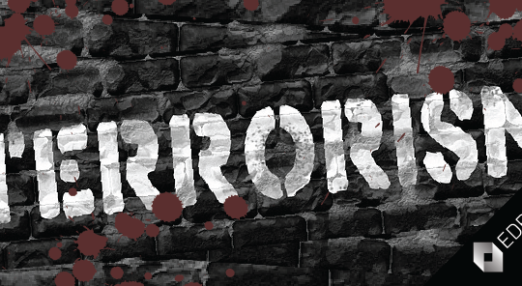
The time has come to complain about the Terrorism Directive
Nearly a year has passed since we told that you’d be now complaining about the Terrorism Directive. On 16 February, Members of the European Parliament (MEPs) will vote on the draft Terrorism Directive. EU policy-makers have meaningfully addressed only very few of the concerns that EDRi and other NGOs have raised since the beginning of […]
Read more
-
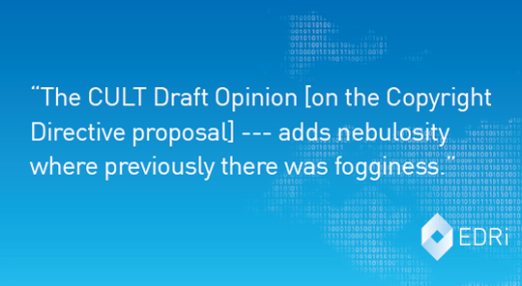
Lead Parliamentarian for Culture Committee defends upload filtering
On 6 February 2017, the Parliamentarian in charge of the Copyright Directive for the European Parliament (EP) Committee for Culture and Education (CULT), Marc Joulaud, published his draft Opinion on the proposal for the Directive. As we described in our previous blogposts (here, here and here) the European Commission’s proposal has not fulfilled hopes for […]
Read more
-

ENDitorial: Fake news about fake news being news
We have heard a lot about fake news over recent months. We have heard urgent calls for action from politicians to deal with this new problem – governments should regulate truth, Facebook should regulate truth, new ministries of truth should regulate the truth. The political world is clear – somebody should do something, quickly! In […]
Read more
-

European fund for digital rights launched
The European movement to defend civil rights in the digital sphere is fighting for fundamental freedoms in the online environment. Most European digital rights NGOs are either entirely made up of volunteers or only have small teams of professional staff. They are usually the first to track and fight emerging issues in the field of […]
Read more
-
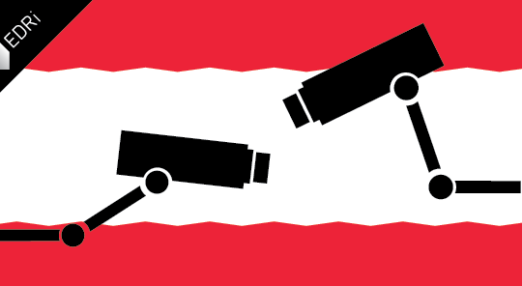
Proposed surveillance package in Austria sparks resistance
The Austrian coalition parties have renegotiated their government programme in January 2017. This new programme contains a so-called “security package” that encompasses the introduction of several new surveillance measures and additional powers for the Austrian security agencies. These changes in the law are to be implemented by June 2017. However, so far no evaluation of already […]
Read more
-

Are the US-EU data agreements still alive?
Late on the first day of Computers, Data Protection and Privacy (CPDP) Conference on 25 January 2017, word came through that US President Donald Trump had issued Executive Order (EO), “Enhancing Public Safety in the Interior of the United States”, which included the following: Privacy Act. Agencies shall, to the extent consistent with applicable law, […]
Read more
-

Dutch Parliament: Safety net for democratic freedoms or sleepnet?
Currently, Dutch parliament is doing everything they can to get a dragnet surveillance bill approved before the elections on 15 March 2017. If they succeed, soon the online communications of Dutch citizens can, on a massive scale, get caught up in the secret services’ dragnet. So what’s happened since the last time we reported to […]
Read more
-
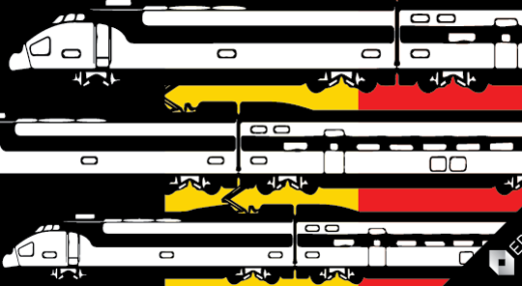
Belgium agrees on passenger controls of international rail traffic
Belgium, the Netherlands, France and the United Kingdom have agreed on new checks of passengers’ identities on international trains. The agreement was reached on 26 January 2017 in an informal meeting between the Ministers of the Interior and Ministers of Justice in Malta. The Belgian Minister of the Interior and Security Jan Jambon announced the […]
Read more
-

Nine controversies about obligatory prepaid registration
“Register your prepaid and get free calls/internet transfer/win a car” – you can hear from Polish telecom operators, as a reminder that all pre-paid SIM cards have to be registered by 1 February 2017. One could almost think that this is just a nicely coordinated campaign of leading telecoms, aimed at collecting a bit more data […]
Read more
-
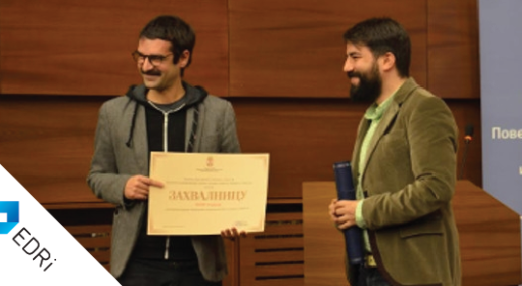
SHARE Foundation honoured with a certificate of gratitude
Data Protection Day was celebrated on 28 January, and it was especially festive for EDRi observer SHARE Foundation. The organisation received a certificate of gratitude from the Commissioner for Information of Public Importance and Personal Data Protection of Serbia for their immense contribution to affirmation of the right to protection of personal data.
Read more
-
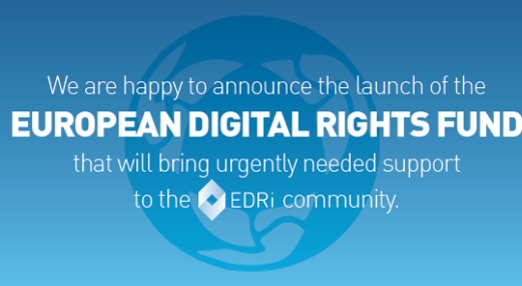
Funding is caring: Small grants to support digital rights groups!
We are more than happy to announce the launch of the “European Digital Rights Fund” that will bring urgently needed support to the EDRi community. This small grants programme, designed by the Renewable Freedom Foundation (RFF), is based on peer-led decisions from our digital rights community based on an easy application process that allows for […]
Read more
-

Commission’s 2017 Work Programme: The good, the bad & the ambiguous
At the end of October 2016, the European Commission presented its programme for 2017 “delivering a Europe that protects, empowers and defends”. The new programme highlights 21 key political initiatives and 18 Regulatory Fitness and Performance reviews (REFIT). The programme also contains an overview of the pending proposals from previous years that need to be […]
Read more
